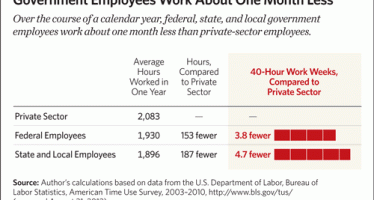Fuel stations for nonexistent cars
May 31, 2012
By Joseph Perkins
If you build it, they will come.
That was the cockeyed reasoning behind a state grant program to encourage construction of hydrogen fueling stations long before hydrogen fuel cell vehicles are actually motoring along the Golden State’s freeways and roads.
The California Energy Commission recently suspended the five-year-old program. The agency’s official explanation was that it intends to “revise solicitation protocols.”
The program was created by a state law that aims to build momentum for the so-called California Hydrogen Highway Network, which was initiated by a 2004 executive order signed by former Governor Arnold Schwarzenegger.
Nunez and Schwarzenegger bought into the premise of renewable energy advocates that, with hydrogen fueling stations dotting the California landscape, the state’s motorists would willingly abandon their dirty, gasoline-powered vehicles for cleaner, environmentally-friendlier cars and trucks powered by hydrogen fuel cells.
But five years and $25 million later, the program has encouraged construction of few hydrogen fueling stations.
That is attributable in no small part to the fact that there is almost no demand for such stations. And that’s because there currently are almost no cars or trucks on California roads powered by hydrogen fuel cells.
And there won’t be any until at least 2017, when automakers are expected to bring their first hydrogen fuel cell cars to showrooms. But as experience has taught with electric cars, projected delivery dates are almost always overly optimistic.
Waste and abuse of grant money
So where has the state vehicle license fee money gone that was supposed to build so many hydrogen fueling stations?
Into the bank accounts of such out-of-state corporations as Pennsylvania-based Air Products & Chemicals, and the Germany-based Linde Group, which are members of a coterie, the California Fuel Cell Partnership, along with eight automakers.
All the grant money derived from vehicle license fees paid by California motorists went exclusively to members of the partnership.
The perverse thing is, while the state energy commission says it is “cancelling its grant solicitation for hydrogen fueling stations,” it has not altogether abandoned the ill-conceived program strange bedfellows Nunez and Schwarzenegger created.
“A robust hydrogen fuel station infrastructure is necessary,” explained a commission statement, “to support automakers’ rollout of fuel cell vehicles to comply with the state Air Resources Board’s Zero Emission Vehicle program.
Well, the issue is not about hydrogen fuel station infrastructure. It’s about the state government using public funds to pay for creation of that infrastructure.
Indeed, it’s patently unfair to require 99.9 percent of California motorists to subsidize infrastructure that will be used by the .1 percent that own hydrogen fuel cell cars. Let those motorists driving on hydrogen pay for their own infrastructure.
If the demand for hydrogen fuel cell cars grows to the level expected by the state energy commission and hoped for by automakers planning to unveil such vehicles five years from now, it will be unnecessary to proffer grants to corporations like Air Products = Chemical and the Linde Group to build hydrogen fueling stations.
The promise of profits will encourage those and other corporations to build the stations on their own nickels and dimes.
Related Articles
BART strike would provide needed clarity on compensation, union power
If I was an advisor to Gov. Jerry Brown, I’d recommend he let the BART strike play out without government
State selling properties to raise cash
Feb. 23, 2010 By KATY GRIMES With the state of California selling off property to raise cash in the face
Is Prop 13 Hurting Small Businesses?
NOV. 11, 2010 By KATY GRIMES On the corner of a major intersection in Menlo Park, a small, independently owned



